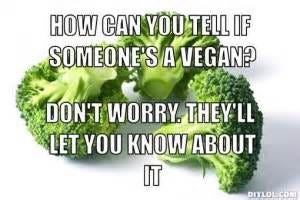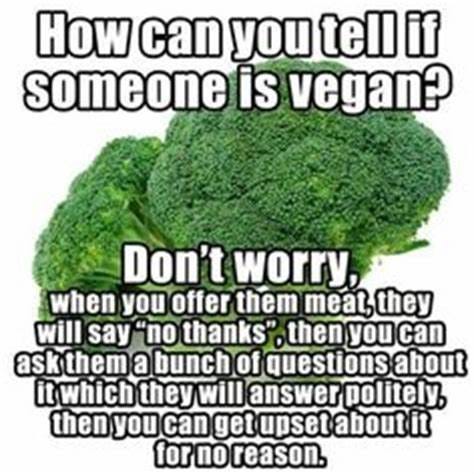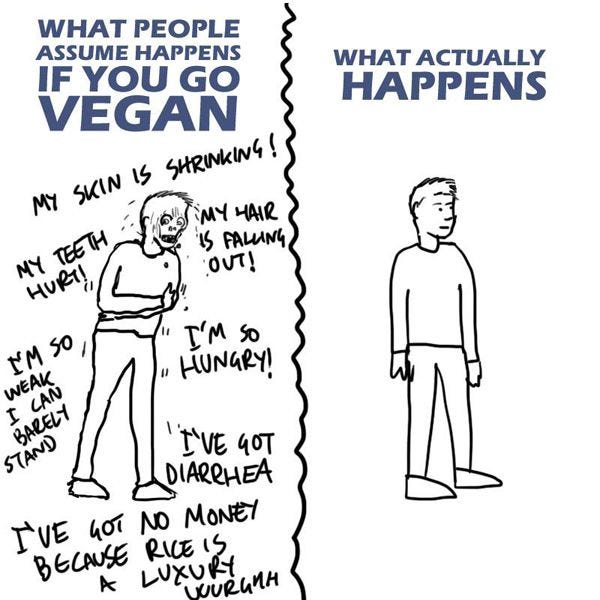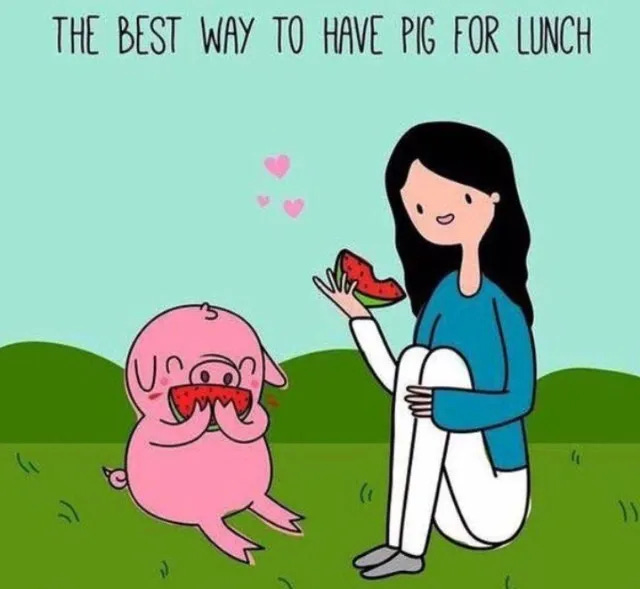Do you think vegans are too “preachy”, “moralistic”, or “judgmental”? I sometimes hear these sorts of complaints. It sounds like it’s all very well for these finicky vegans to fill their own plates with tofu and broccoli if they want. But where do they get off bothering everyone else with their “moral concerns” and trying to make people feel guilty? When are they going to just shut up and drink their kale juice?
If you share these complaints, then I think you don’t take morality seriously.
Vegans are not people who just don’t personally like eating meat. We’re not just picky eaters. Most vegans are people who think eating meat is morally wrong. Furthermore, we don’t think it is a little foible. We think it is an extreme wrong. In terms of quantity of harm, this class of actions outweighs all other wrongs done by human beings combined, and by a wide margin.
The reasons for thinking these things have been explained clearly and at length elsewhere. For details, see my book: https://www.amazon.com/dp/1138328294/.
[ Note 1: To start with, it is estimated that humans kill about 74 billion animals per year for gustatory pleasure. About 99% of them were on factory farms. The conditions on these farms are the sort of thing you would not hesitate to call “torture” if someone subjected you to such conditions, and this is generally agreed upon by everyone who looks at them. The total number of humans who have ever existed on the Earth is around 110 billion. So a reasonable estimate is that, every few years, we inflict on other species a quantity of suffering larger than all the human suffering in all of history. In return, we get enhanced gustatory pleasure during meals. So, even if human welfare were 1,000 times more important than animal welfare, this would still plausibly count as the worst thing humans have ever done, by a wide margin. In the book, I review the attempts to show that this is okay, including attempts to show that human welfare matters vastly more than animal welfare. None of these attempts is at all plausible.
Note 2: By the way, the wrongness of factory farming is an extremely widely held view in ethics, including among ethicists who themselves continue to eat meat anyway. It is very common for people to agree that buying meat is wrong while declaring that they plan to continue doing it anyway, because they are weak-willed. This is the only issue I know of for which such reactions are so common. ]
For now, just accept that that is what we think.
If that’s what one thinks, what should one do? Should one just shut up and drink one’s kale juice in silence – so as to avoid annoying the people who are committing the horrific wrong by momentarily making them feel bad about it?
No, one should not. Not unless one doesn’t care about morality. When other people are committing extreme wrongs, telling them that it’s wrong is really a bare minimum response.
Of course, you might well treat it as an annoyance if you thought vegans were making these charges frivolously. If a friend of mine starts comparing everything to the Holocaust – when a waitress messes up his order, she’s like Hitler; when I fail to appropriately cite one of his papers, that’s a scholarly Holocaust; etc. – I may regard this as an annoyance and tell my friend to shut up already.
Vegans, however, are obviously not making frivolous charges. Vegan arguments have a straightforward and obvious logic, which many sophisticated philosophers consider unanswerable. When meat-eaters pause from expressions of disdain long enough to try to engage with them, the objections they raise are among the lamest, most easily answered objections to be found in all of philosophy (which is really saying something). By the way, that is a widely-shared assessment among people who know the literature.
If you don’t know any of my work, you might assume I am just overconfident and that I say that about everything I disagree with people about. But if you know the rest of my work, you know that in fact, I say that about nothing else. I think this is literally the most one-sided controversial issue. Every other controversial belief I have has more reasonable objections against it.
Again, you might disagree with that; you might think the issue is much more two-sided than I think. My point right now is simply that vegans are not raising frivolous moral concerns. I can’t see how anyone could look at the literature and disagree with that point.
So, if someone raises serious concerns that a common behavior may be not slightly but extremely wrong, and your first reaction is that this is “preachy”, that is failing to take morality at all seriously. I think it may be that most people fail to take morality at all seriously. They treat morality as a trivial personal preference, see others’ raising of serious moral concerns as an impolite annoyance, and feel disdain toward morally principled behavior.
[Edited since first version posted in Nov. 2018. --mh]








I hate those preachy anti child abusers. When I ask them if they’d like to go looking for a child to abuse, they get upset!
I think this is similar to how people should understand evangelists. They don't just think that not worshiping the true God is a little foible. They think that it is an extreme wrong. In terms of quantity of harm, this class of actions outweighs all other wrongs done by human beings combined, and by a wide margin. Once understood, there should be a greater patience.